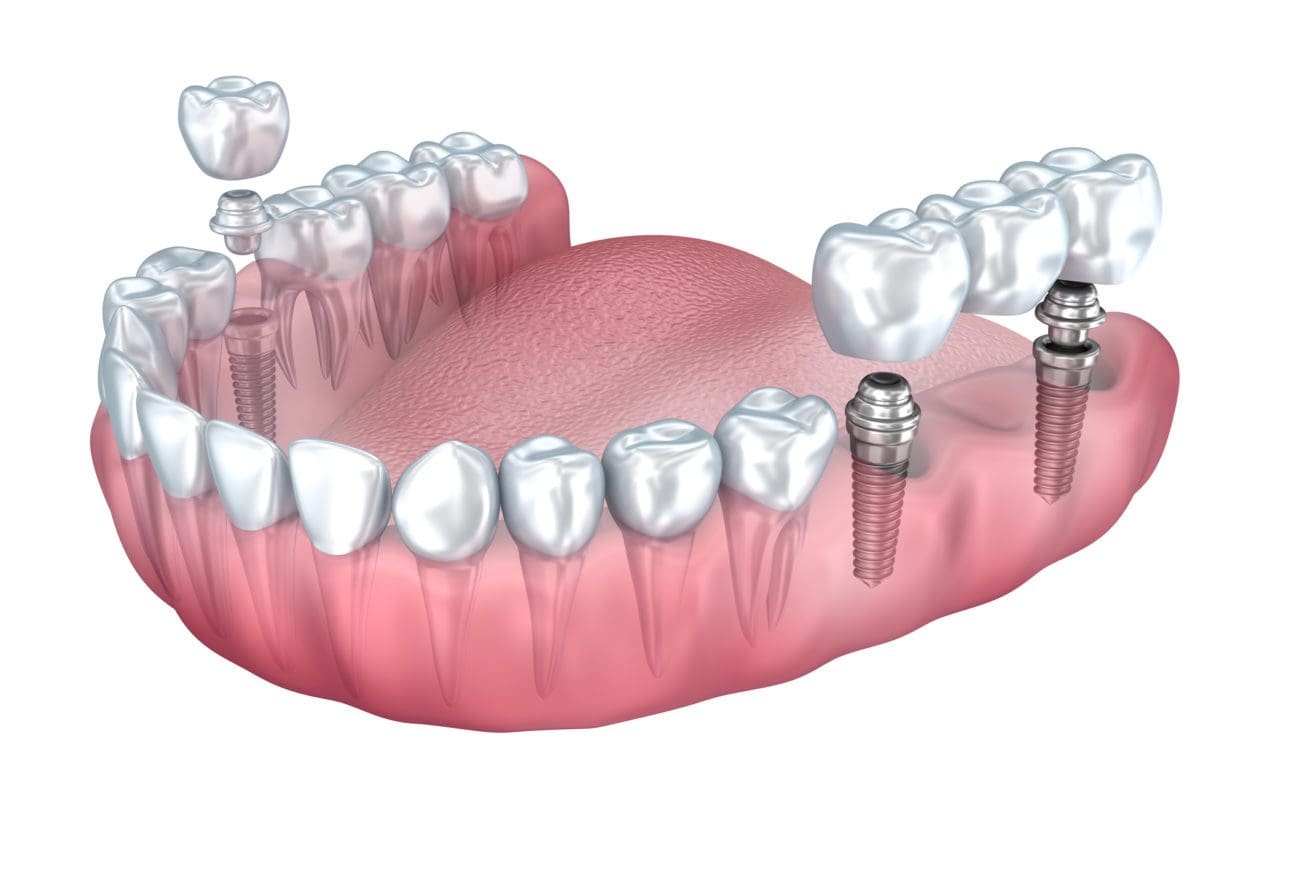10 Easy Facts About Dental Sense Explained
10 Easy Facts About Dental Sense Explained
Blog Article
A Biased View of Dental Sense
Table of ContentsDental Sense - The FactsSee This Report on Dental SenseNot known Factual Statements About Dental Sense The 25-Second Trick For Dental Sense
are clinical tools operatively dental implanted into the jaw to restore a person's capability to chew or their look. They offer support for fabricated (fake) teeth, such as crowns, bridges, or dentures. When a tooth is lost as a result of injury or disease, an individual can experience complications such as rapid bone loss, defective speech, or adjustments to chewing patterns that cause discomfort.Dental implant systems consist of an oral implant body and oral implant joint and may also consist of a joint fixation screw. Dental implants. The dental implant body is surgically inserted in the jawbone in location of the tooth's origin. The dental implant abutment is typically attached to the implant body by the abutment fixation screw and expands through periodontals right into the mouth to sustain the attached synthetic teeth
(https://www.intensedebate.com/people/dentalsense1)Framework of The Dental Implant System picking oral implants, speak to your dental provider concerning the prospective benefits and dangers, and whether you are a candidate for the treatment. Things to take into consideration: Your total wellness is an essential consider establishing whether you are a great candidate for oral implants, for how long it will certainly take to recover, and for how long the implant may remain in area.
Smoking may influence the recovery procedure and reduce the long-lasting success of the dental implant. The healing procedure for the implant body might take several months or longer, during which time you generally have a short-lived abutment instead of the tooth. the oral implant procedure: Thoroughly adhere to the dental hygiene directions offered to you by your oral service provider.
Some Known Facts About Dental Sense.
Implant failure can result in the demand for another medical procedure to fix or change the implant system. Brings back the capacity to chew Recovers aesthetic look Helps keep the jawbone from shrinking as a result of bone loss Maintains the health and wellness of the bordering bone and periodontals Aids maintain nearby (neighboring) teeth stable Enhances lifestyle Damage to surrounding all-natural teeth during implant positioning Injury to the surrounding cells throughout surgical treatment, such as sinus opening Injury throughout surgical procedure (for instance, crack of bordering jawbone) Insufficient feature, such as seeming like the teeth do not bite together usually A sensation that the tooth is loosened or twisting in position arising from an abutment screw loosening Implant body failing (looseness of the implant body) as a result of systemic infection, which might be most likely in individuals with unchecked diabetics issues as a result of local infection in bone and gums supporting the dental implant body because of postponed healing, which may be most likely in patients who smoke Trouble cleaning up the gum tissues around the dental implant, leading to bad oral health Neglected gum illness Post-surgical numbness as a result of nerve impingement or damage Constantly notify health care suppliers and imaging specialists that you have oral implants before any kind of magnetic vibration imaging (MRI) or x-ray procedures.
FDA is not conscious of any unfavorable occasions reported for MRI or x-ray procedures with dental implants. Oral implants systems are commonly made of products that adhere to international agreement requirements of the International Company for Standardization (ISO) or ASTM International. These criteria have information of what makes a risk-free product.

An oral implant is a framework that changes a missing tooth. With screw-like gadgets, the specialist inserts a dental implant into basics the jawbone, and it acts as a support for a fabricated tooth, called a crown.
Little Known Facts About Dental Sense.
Some individuals are not eligible for oral implant surgical procedure. It is for oral specialists to operate people with: acute illnessuncontrollable metabolic diseasebone or soft tissue illness or infectionIf these problems are dealt with, a person can have the surgical procedure. In, dental doctors avoid operating individuals with: If individuals with any of the above go through oral implant surgical treatment, there is a greater danger of the dental implant failing.

Oral implant surgical procedure is a tailored process. It's not the same for every person. The following offers a general introduction of what you can expect your dental practitioner, oral doctor, periodontist or prosthodontist to do: Position the implant surgically. Give you time to recover. Attach the post and final crown, bridge or denture.
Next off, your doctor will very carefully put the dental implant into your jaw. Finally, your surgeon will certainly reposition your gums and close the incision with stitches. If your dental implant is near the front of your mouth, your dental expert will make a short-lived tooth for you to use up until you recover. That method, you will not have a space in your smile while you recuperate.
Dental Sense Can Be Fun For Anyone
Throughout the recovery stage, your jawbone should fuse to the dental implant. This process can take anywhere from three to 9 months.
As soon as your implant heals, your dentist can connect the abutment (small port article) and your final remediation (crown, bridge or denture). This normally takes concerning one hour to finish and might require a 2nd minor surgical procedure. You should not feel any type of discomfort throughout your dental implant procedure due to the fact that your supplier will make use of medicine to numb your gum tissues.
Report this page